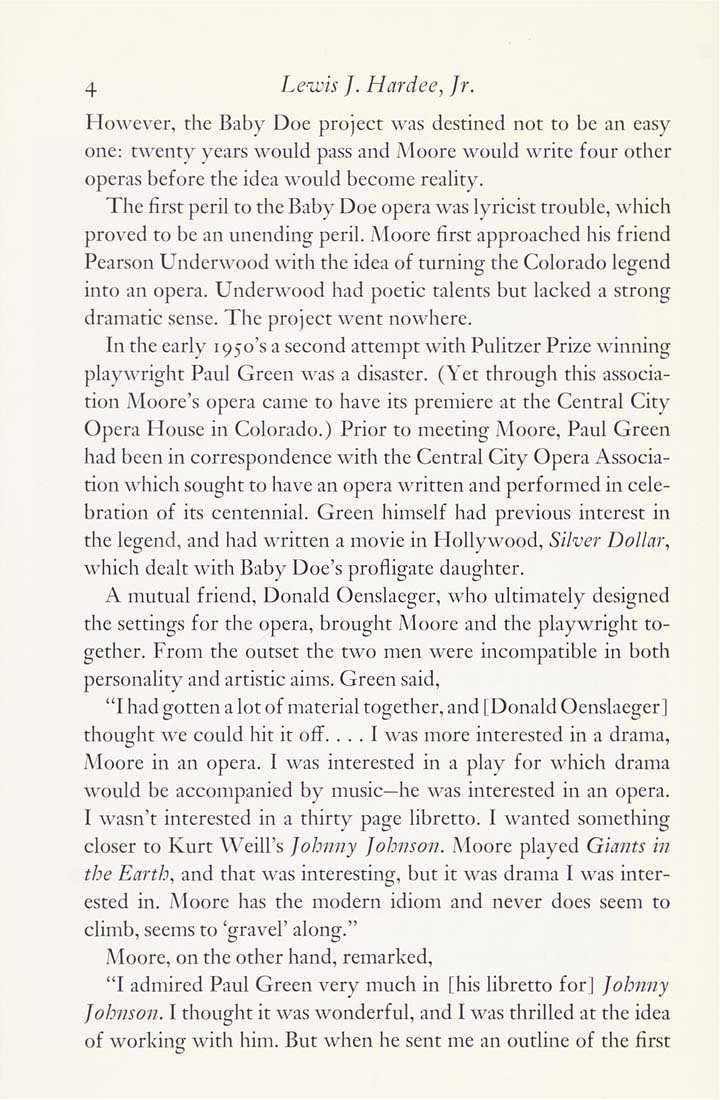Columbia Library columns (v.23(1973Nov-1974May))
(New York : Friends of the Columbia Libraries. )
|
||
|
|
|
|
| v.23,no.1(1973:Nov): Page 4 |

4 Leivis J. Hardee, Jr. However, the Baby Doe project was destined not to be an easy one: twenty years would pass and Moore would write four other operas before the idea would become reality. The first peril to the Baby Doe opera was lyricist trouble, which proved to be an unending peril. Moore first approached his friend Pearson Underwood with the idea of turning the Colorado legend into an opera. Underwood had poetic talents but lacked a strong dramatic sense. The project went nowhere. In the earlv 1950's a second attempt with Pulitzer Prize winning playwright Paul Green was a disaster. (Yet through this associa¬ tion Moore's opera came to have its premiere at the Central City Opera House in Colorado.) Prior to meeting Moore, Paul Green had been in correspondence with the Central City Opera Associa¬ tion which sought to have an opera written and performed in cele¬ bration of its centennial. Green himself had previous interest in the legend, and had written a movie in Hollywood, Silver Dollar, which dealt with Baby Doe's profligate daughter. A mutual friend, Donald Oenslaeger, who ultimately designed the settings for the opera, brought Moore and the playwright to¬ gether. From the outset the two men were incompatible in both personality and artistic aims. Green said, "I had gotten a lot of material together, and [Donald Oenslaegerl thought we could hit it off. ... I was more interested in a drama, Moore in an opera. I was interested in a play for which drama would be accompanied by music—he was interested in an opera. I wasn't interested in a thirty page libretto. I wanted something closer to Kurt Weill's Johmiy Johnson. Moore played Giants in the Earth, and that was interesting, but it was drama I was inter¬ ested in. Moore has the modern idiom and never does seem to climb, seems to 'gravel' along." Moore, on the other hand, remarked, "I admired Paul Green very much in [his libretto for] Johnny Johnson. I thought it was wonderful, and I was thrilled at the idea of working with him. But when he sent me an outline of the first |
| v.23,no.1(1973:Nov): Page 4 |







